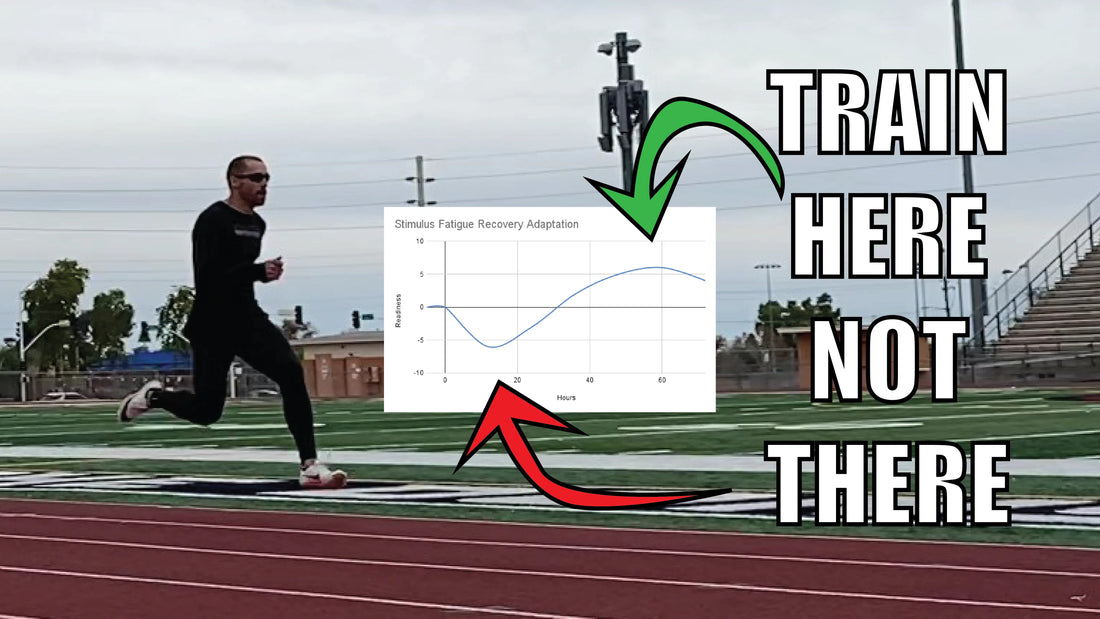Putting together a high quality workout is something we can all agree is important if we want to develop as athletes. What is more important though is how these training sessions are organized through time, since the goal of training is to achieve a cumulative effect from many training sessions in an effort to inch the body toward higher levels of performance.
Going too easy, too hard, or having poorly planned intervals between sessions can be the demise of an athlete’s progress. To get the most out of training, we need to select the right workouts, implement them at appropriate times, and then allow for enough recovery before coming back for another intense workout.
Stimulus - Fatigue - Recovery - Adaptation
In its simplest form, training is stress. We apply stress that falls into certain categories, with the hope that the body will see the need to better handle this stress in the future by dedicating resources to recover from the type of stress it experienced in training.
A distance runner who goes on a long run will stress their aerobic system, which the body will then respond to by improving oxygen carrying capacity, V02 max, etc. A powerlifter who goes to the gym and performs heavy lifts will challenge their muscles and nervous system to generate force, and the specific stressors of their training will lead to changes in the body in the form of stronger muscles and a better firing nervous system.
Sport scientists over time have come up with the concept of how the body responds to exercise, and one way to conceptualize this is through the lens of stimulus, fatigue, adaptation, recovery.
- Stimulus - A training session is performed which applies stress to the body. This is the stimulus.
- Fatigue - If the stimulus is potent, it will induce fatigue which lowers the body’s state of readiness and ability to perform work. This is what you feel in the hours or days following a hard training session.
- Recovery - Following the onset of fatigue, the body will begin to recover from the fatigue induced by the stimulus. This can include replenishing glycogen stores, replenishing neurotransmitter levels, increasing protein synthesis to repair tissues, etc.
- Adaptation - Once recovered, the body then adapts to the initial stimulus. If timed properly, the abilities of the athlete will be enhanced during this adaptation period, making them better able to handle the stimulus in the future.
A key concept in periodization of training is that we need to apply the right stimulus at the right time in order to push our bodies to improve.
Supercompensation
If training is dosed properly and adequate recovery time is given, the athlete will experience supercompensation. Supercompensation is roughly defined as the post-training period of time where the athlete has recovered from the stress of training, and the capabilities of the athlete are higher than they were prior to training.
For example if you perform squats for multiple sessions, once recovered you will likely be able to lift more weight than you did prior to when you started training squats. In sprinting, this would result in running faster times over the distances you have trained.
Supercompensation is essentially what every coach and athlete is after when they train, because improvement in the qualities we train dictates our success.
Achieving supercompensation requires a few things:
- Training loads or doses of training stress need to challenge the athlete without creating excessive fatigue.
- Adequate recovery that is neither too brief nor too long is required in order for the athlete’s performance status to rise after incurring the stress of training.
- Training must be initiated once the athlete has recovered from previous training, so that they can continue to improve the qualities being developed.
Applying an intense training stress too soon when the athlete has not yet recovered will cause large amounts of fatigue in an additive sense, meaning that the fatigue will compound over multiple sessions and seriously detract from their ability to perform. This lengthens the time it takes to see supercompensation, and when taken to the extreme can lead to overreaching or overtraining.
In contrast, if training stress is not applied soon enough after the athlete has recovered, their abilities may return to the pre-training baseline as the body will always seek homeostasis and will not retain performance improvements unless the qualities are continuously trained.
With this in mind, it is important to track your training and take note of how the training affects the athlete, as this can help the coach or athlete decide when is an appropriate time to reapply stress in the form of intense training.
